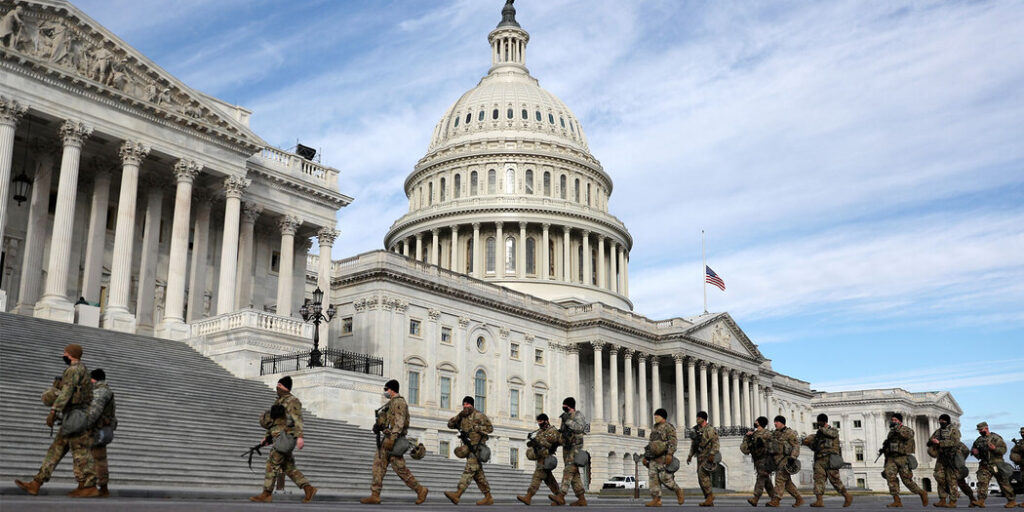The Posse Comitatus Act of 1878 was enacted to limit the role of the U.S. military in civilian law enforcement, except when Congress explicitly authorizes it. Although it aims to prevent the use of federal troops against American citizens, numerous loopholes and exceptions undermine this restriction. Joseph Nunn from the Brennan Center explores these challenges in his latest report advocating for reforms to strengthen this essential legal provision.
Understanding the Term “Posse Comitatus”
The term “posse comitatus” translates to “the power of the county” from Latin. Historically, it referred to the authority of sheriffs and certain law enforcement officials to enlist citizens to help pursue criminals. In both Britain and the early United States, where the sheriff was often the sole law enforcement figure, this power was crucial. In popular culture, this concept appears when a Western sheriff forms a “posse” to catch outlaws. The Posse Comitatus Act was named to reflect its intent to prevent federal military forces from being used similarly for law enforcement without Congress’s consent.
Weaknesses in the Posse Comitatus Act
The current Posse Comitatus Act is criticized for being ineffective. While its text limits military involvement in law enforcement, it is compromised by numerous exceptions and lacks a robust enforcement mechanism. The principles inherent in the Act are often maintained by historical norms rather than the law itself. In contemporary times, reliance on tradition is insufficient to limit executive actions.
Loopholes and Exceptions
A significant concern is the Insurrection Act, which grants the president broad powers to deploy the military domestically under vaguely defined conditions. The Brennan Center has proposed reforms to address these issues. Another notable loophole involves the District of Columbia National Guard, which is under the president’s control, unlike other National Guards controlled by state governors. It can operate as a “militia” not bound by the Posse Comitatus Act, allowing potential use for law enforcement at the president’s discretion.
Section 502(f) of Title 32 of the U.S. Code is another loophole, permitting the National Guard to undertake federal missions requested by the president or secretary of defense, while still under state command. This provision was utilized during the protests following George Floyd’s murder, when National Guard troops were sent to Washington, D.C., without invoking the Insurrection Act.
The Role of the Military in Law Enforcement
Utilizing the military for domestic law enforcement is risky. Soldiers are trained for combat, not for civilian policing, and their involvement could infringe upon constitutional rights. Historically, there has been suspicion toward military power in civilian matters, driven by concerns over potential tyranny. However, there are scenarios, such as the January 6 insurrection, where military involvement is justified due to overwhelming challenges faced by civilian authorities.
Challenges to Reform
Prosecution under the Posse Comitatus Act is rare due to infrequent violations and the military’s compliance with established norms. Despite its flaws, Congress hesitates to amend the Act, viewing it as a crucial safeguard. The military itself is generally averse to domestic law enforcement roles, preferring to focus on its core missions.
Proposed Reforms
The Brennan Center suggests several key reforms, including tightening the Insurrection Act with clear standards and checks, closing the D.C. National Guard loophole, and extending the Posse Comitatus Act’s reach over Section 502(f). Additionally, enhancing enforcement mechanisms, such as allowing civil suits for violations and excluding improperly obtained evidence, could deter noncompliance more effectively than criminal prosecutions.
Outlook for Change
There is some bipartisan agreement on the need for reform, especially concerning the domestic use of the military and the Insurrection Act. However, progress will require time and discussion to increase understanding of this complex legal area. The Brennan Center’s report aims to foster dialogue and push for necessary legislative changes.





